-
 Art of Wellness Acupuncture & Traditional Chinese Medicine (TCM)11704 Wilshire Blvd, Suite 295, Los Angeles, CA, 90025
Art of Wellness Acupuncture & Traditional Chinese Medicine (TCM)11704 Wilshire Blvd, Suite 295, Los Angeles, CA, 90025
myartofwellness@gmail.com310-451-5522 Office Hours
MonClosedTue7:30 am --4 pmWed7:30 am --4 pmThu7:30 am -- 4 pmFri7:30 am -- 4 pmSat7:30 am -- 4 pmSunClosedOur office opens from Tuesdays to Saturdays 7:30 am to 4 pm, will be closed on Memorial day, Independent day, Labor day, Thanksgiving day, Christmas and New year.
-
Recent Posts
- How to Treat De Quervain’s Tenosynovitis With Acupuncture and TCM
- Chinese New Year 2026: Year of the Horse
- Acupuncture and TCM Treatment for Perimenopause Symptoms
- How to Treat Insulin Resistance With Acupuncture and TCM
- How to Treat Metabolic Syndrome With Acupuncture and TCM
- How to Treat Syncope With Acupuncture and TCM
- How to Treat Thoracic Outlet Syndrome With Acupuncture and TCM
- How to Treat Dupuytren’s Contracture With Acupuncture and TCM
- How to Treat Nutcracker Syndrome With Acupuncture and TCM
- How to Treat Rosacea With Acupuncture and TCM
- How to Treat Perioral Dermatitis With Acupuncture and TCM
- Lymphatic Drainage With Acupuncture and TCM
- How to Treat Turf Toe With Acupuncture
- How to Treat Nerve Pain With Acupuncture and TCM
- How to Treat Watery Eyes With Acupuncture and TCM
- How to Treat Ovarian Cysts With Acupuncture and TCM
- Sign up to receive news and updates and get my free report:“The Top 10 Reasons to Try Acupuncture”

December 2025 M T W T F S S 1 2 3 4 5 6 7 8 9 10 11 12 13 14 15 16 17 18 19 20 21 22 23 24 25 26 27 28 29 30 31
Allergies
How to Treat Atopy with Acupuncture and TCM
By Xiaomei Cai, L.Ac., Ph.D and Qineng Tan, L.Ac, Ph.D.
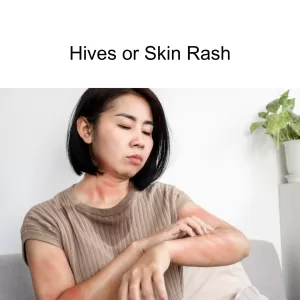
Do you suffer from more than one kind of allergy? Asthma, food allergies, eczema, hives, hay fever? “Atopy” is the tendency to have several different kinds of allergic reactions, or conditions such as atopic dermatitis. Acupuncture and TCM can help relieve allergy symptoms and itchy rash.
What Is Atopy?
The term “atopy” refers to a collection of allergic conditions that a person might experience all together. Atopic disorders include asthma, allergic dermatitis or eczema (red, inflamed, itchy skin), frequent urticaria or hives, and allergic reactions to foods and environmental allergens.
If you frequently experience allergy symptoms, like itchy eyes, skin rashes, and shortness of breath, then you may have atopy.
Atopy is known to be related to a heightened immune response that occurs because of Immunoglobulin (IgE) antibodies. Atopic dermatitis, in particular, is associated with higher than usual levels of IgE.
IgE antibodies are proteins produced by the immune system. They help fight off infection and react when a person is exposed to allergens, like certain foods (i.e. dairy, wheat, nuts), insect venom, ragweed and other plants that trigger hay fever symptoms, and some medications.
When IgE is produced and interacts with receptors in the body, it triggers allergic reactions, such as inflammation that constricts the airways (asthma), makes skin turn red and itchy (eczema, dermatitis, hives), produces excess mucus (runny nose, allergic rhinitis), or sudden drop in blood pressure (anaphylaxis).
People with atopy can sometimes have up to ten times the usual amount of IgE in their bloodstream. IgE levels can also be elevated in people with autoimmune conditions like rheumatoid arthritis (RA), psoriasis, and lupus.
Is Atopy an Autoimmune Disease?
While atopy, and atopic dermatitis or atopic eczema, are related to the immune system, and are considered to be associated with autoimmune disorders, such as Crohn’s disease, Celiac disease, alopecia areata, and ulcerative colitis, atopy itself is not currently categorized as an autoimmune condition.
Treatment for Atopy

Typical medical treatment for atopy involves prescription corticosteroid creams and antihistamines to control the body’s exaggerated immune response.
Prolonged use of corticosteroids can lead to many unwanted side effects, including weight gain, swelling, high blood pressure, elevated blood sugar levels, loss of bone mass, mood swings, and increased risk of infections.
Reliance on antihistamines can cause side effects, too, including drowsiness, blurred vision, dry mouth, problems with urination, and liver problems.
Acupuncture and TCM offer a holistic way to help relieve allergic conditions, including atopic disorders, without the toxic side effects of pharmaceutical drugs.
Can Acupuncture Help Atopy?
Treatment of allergies with TCM goes back thousands of years. Centuries of observation, study, and treatment with acupuncture and herbal formulas have led to the development of treatment regimens that can help address both patterns of allergy symptoms and the underlying systemic imbalances that cause them.
One of the most prominent concepts in TCM theory is that of Yin and Yang, two opposing yet complementary forces. When Yin and Yang are balanced within the body, systems work harmoniously. When Yin and Yang are out of balance, disease occurs.
According to TCM theory, allergic diseases arise due to imbalances in Yin and Yang that contribute to either an exaggerated response from the immune system, or a suppression of the immune response. This concept is roughly analogous to what science has shown about pro-inflammatory cytokines and anti-inflammatory cytokines.
In TCM, we see people’s health as being very much influenced by their environment, emotions, nutrition, stress, etc. We also acknowledge that each person is born with certain attributes of their constitution, or foundational health. People who are prone to allergies have inherited certain physiological conditions that make them more susceptible to these problems. However, this might show up differently in different individuals, depending on deficiencies within their organ systems.
For example, one person may have Qi deficiency in the lungs, which will translate into allergic reactions that affect the respiratory system and skin, while another may have deficiency in the stomach or spleen, which can lead to damp-heat conditions that cause eczema. Liver deficiency can lead to “wind” conditions like hives, and so on.
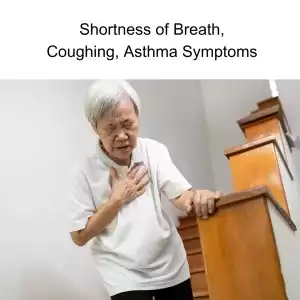
Therefore, the aim in using TCM to treat atopy is to address the overall balance of yin and yang and also to address more specific deficiencies in the organ systems. Acupuncture and herbs can also strengthen the constitution and the immune system, so that a person is better able to fight off external pathogens.
Every person experiences atopy in their own unique way, depending on their symptoms. Acupuncture treatment and other TCM modalities, especially herbal medicine, can be personalized for each individual patient.
Acupuncture can be very effective for relieving the uncomfortable symptoms triggered by atopic conditions. For example, studies have shown that acupuncture treatment can help reduce the intensity of chronic itching due to dermatitis.
A review of 14 studies on TCM to treat atopic eczema concluded that patient who received acupuncture treatment experienced less severe symptoms, compared with patients who were given antihistamines.
Acupuncture Near Me for Atopy in West Los Angeles
Drs. Tan and Cai at Art of Wellness Acupuncture in Los Angeles have over 35 years of experience helping patients who are suffering from allergic conditions. Acupuncture and herbs can help relieve itchy rashes, respiratory symptoms, food sensitivities, and other immune issues. Please do not hesitate to come in for consultation, to see if we can help you find relief from a multitude of uncomfortable symptoms of atopic dermatitis, hives, and other allergic reactions.
*This article is for education from the perspective of Traditional Chinese Medicine only. The education provided by this article is not approved by FDA to diagnose, prevent, treat and cure human diseases. It should not stop you from consulting with your physician for your medical conditions. Traditional Chinese Medicine is based on Qi, which is an invisible force that usually cannot be observed by modern science. Because science focuses on testing ideas about the natural world with evidence obtained through observation, these aspects of acupuncture can’t be studied by science. Therefore acupuncture and Chinese herbs are often not supported by double-blind, randomized trials, and they are considered alternative medicine therapies in the United States.
How to Treat Pruritus With Acupuncture and TCM
By Xiaomei Cai, L.Ac., Ph.D. and Qineng Tan, L.Ac., Ph.D.
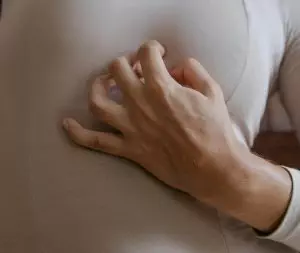
Itchy skin, hives all over the body, or skin rashes that itch? Pruritus, commonly known as itching, is an irritating and persistent condition that affects many people. Acupuncture and TCM herbs can offer a holistic approach to alleviate itching.
Pruritus is simply a medical term that means “itching,” or that feeling that you need to scratch your skin. It can refer to itchy skin on one part of the body, or systemic itching that feels like it moves around or affects the whole body. The sensation can be mild, even ticklish, or painful and constant to the point that it is debilitating.
The sensation of itching all over body can significantly impact one’s quality of life, as it can be painful, distracting, and make it difficult to concentrate, relax, or sleep.
Persistent itching requires treatment that takes many possible underlying factors into consideration. This is why acupuncture and TCM can be a good alternative treatment for pruritus.
What Causes Pruritus?
Pruritus can stem from various causes. It can be a primary condition, arising due to a skin problem or skin allergy, such as:
- Atopic dermatitis
- Dermatitis herpetiformis
- Psoriasis
- Eczema
- Hives, urticaria
- Folliculitis
- Dry skin
- Hemorrhoids
- Head lice infestation
Pruritus can also be caused by many other conditions, such as nerve damage, renal disorders that require dialysis, blood diseases like polycythemia vera, hepatitis, liver cirrhosis, infections like chicken pox and shingles, HIV, thyroid disorders, MCAS, pregnancy and perimenopause.
Top 10 Pruritus Causes
Because the sensation of itching, like that of pain, can be influenced by so many factors, there are many possible causes of pruritus. Itchy skin can be caused by a wide variety of conditions, including:
- Allergic Reactions: Common allergens include certain foods, medications, and insect stings or bites. Immune system disorders like MCAS can cause pruritus.
- Dermatitis: Conditions like atopic dermatitis (eczema) and contact dermatitis can lead to persistent itching.
- Skin Infections: Bacterial, viral, and fungal infections can cause itching.
- Dry Skin (Xerosis): Often exacerbated by environmental factors, dry skin can cause itching.
- Internal Diseases: Liver disease, chronic kidney disease, thyroid problems, and certain cancers can cause systemic itching. Chronic kidney disease that require dialysis treatment, in particular, can cause a condition known as Uremic Pruritus.
- Nervous System Disorders: Conditions such as multiple sclerosis, pinched nerves, and postherpetic neuralgia can lead to pruritus. Brachioradial pruritus, for example, is a condition in which irritation of the cervical nerves (C5-C8) causes itching on one or both of the the upper arms.
- Mental Health Issues: Stress, anxiety, and obsessive-compulsive disorder can manifest with itching.
- Pregnancy: Some women experience pruritus during pregnancy due to hormonal changes.
- Perimenopause: Some women experience pruritus during perimenopause and menopause due to a reduction in estrogen levels.
- Reactions to medications: Many drugs can cause pruritus as a side effect, including antibiotics like penicillin, amoxicillin, erythromycin, blood pressure medications, statins, or cholesterol medications, analgesics like aspirin, and tricyclic antidepressants.
Treatment for Pruritus
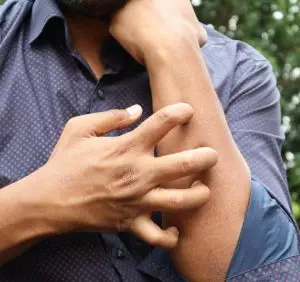
Conventional medicine typically treats pruritus by trying to find and address the underlying cause, while using medications to alleviate the symptom of itching. This may include topical treatments like over-the-counter or prescription creams and ointments that contain corticosteroids, menthol, or capsaicin to soothe the skin and reduce inflammation. These creams may help relieve localized itching for a time, but they cannot do much to control widespread, systemic itching.
Antihistamines, such as diphenhydramine or cetirizine, may be prescribed to reduce allergic reactions and relieve itching. These can be helpful in some acute cases of pruritus, but again, they do not resolve the problem of chronic itching. Overall, most people with chronic pruritus do not get adequate relief from antihistamine treatment for itching.
For severe itching, oral corticosteroids or immunosuppressants may be prescribed to reduce inflammation and immune response.
TCM and acupuncture can be an effective alternative or adjunct treatment for itching, as TCM addressed both underlying conditions and the symptoms of itchy skin.
Can Acupuncture Help Pruritus?
TCM methods like acupuncture and moxibustion have been used for over 2000 years to help relieve itchy skin conditions and systemic pruritus. Now, scientific research is beginning to show that Chinese medicine is an effective alternative treatment for itching.
The mechanisms that cause the sensation of itching often stem from the brain and the peripheral nervous system. Acupuncture has been shown to have an effect on the nervous system, and specifically, to help reduce the activation of the itch response in the brain.
Itching responses are also activated by the behavior of mast cells, like cytokines. Acupuncture, particularly electroacupuncture, has been shown to help regulate the activity of cytokines, which can help reduce inflammation and sensation.
Acupuncture is well known, now, to help relieve pain by stimulating receptors in the brain. This same action can help to reduce itchy sensations, as well as pain.
The chemical and mechanical activations that cause itching can lead to a chronic problem referred to as the “itch-scratch vicious cycle,” which occurs because of a neural loop in the spinal cord. Acupuncture can potentially help to disrupt this chronic loop of activations that causes the urge to scratch.
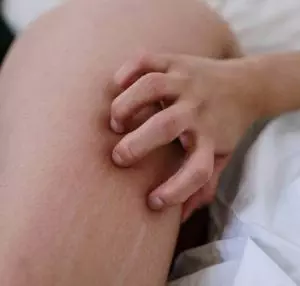
Acupuncture and TCM herbal remedies can also help to clear up skin conditions that are directly causing itching, and can help to address deeper underlying conditions, such as liver and kidney ailments, that can be the secondary cause of systemic itching.
Uremic pruritus, which is associated with dialysis treatment for chronic kidney disease or renal failure, affects many people. This type of pruritus can cause sleep problems and affect patients on a daily basis and is believed to be caused by severe dryness of the skin, along with sweating, and chronic inflammation. It may also be related to opioid receptors and inappropriate nerve signaling that triggers the release of cytokines. A review of studies about acupuncture treatment for chronic kidney disease suggests that TCM is highly effective for reducing itching related to uremic pruritus.
One specific study looked at patients undergoing dialysis who were given acupressure treatment. The conclusion was that acupressure was both helpful for relieving itching and cost effective as a treatment alternative.
Acupuncture treatment has an impact not only on the autonomic nervous system, but also on histamine release, and studies have shown that acupuncture is more effective at controlling histamine-related itching than many antihistamine medications.
One study done with 16 patients suffering from brachioradial pruritus (itching on the upper arm/s) found that the majority experienced total resolution of their itching, while the remaining patients experienced partial relief of itching.
Acupuncture Near Me for Pruritus in West Los Angeles
Acupuncture can be beneficial for itchy skin conditions like hives, dermatitis, and rashes. During pregnancy and perimenopause, acupuncture can help balance hormones to relieve itching and insomnia. Acupuncture can also help relieve anxiety, PTSD and panic disorders that can sometimes exacerbate itching sensations. Liver problems, kidney problems, and side effects of cancer treatment can all be addressed with TCM, which may help relieve persistent pruritus.
*This article is for education from the perspective of Traditional Chinese Medicine only. The education provided by this article is not approved by FDA to diagnose, prevent, treat and cure human diseases. It should not stop you from consulting with your physician for your medical conditions. Traditional Chinese Medicine is based on Qi, which is an invisible force that usually cannot be observed by modern science. Because science focuses on testing ideas about the natural world with evidence obtained through observation, these aspects of acupuncture can’t be studied by science. Therefore acupuncture and Chinese herbs are often not supported by double-blind, randomized trials, and they are considered alternative medicine therapies in the United States.
How to Treat MCAS With Acupuncture and TCM
By Xiaomei Cai, L.Ac., Ph.D. and Qineng Tan, L.Ac., Ph.D.

Shortness of breath, dyspnea? SIBO or fungal infections? Sensitive to smells? Signs of orthostatic low blood pressure? Itchy skin rash or hives? Musculoskeletal pain, joint pain? These can be some of the many different MCAS symptoms. Acupuncture and TCM can offer alternative treatment for MCAS, or mast cell activation disorders.
Mast Cell Activation Syndrome (MCAS) is a complex and often underdiagnosed condition characterized by the inappropriate activation of mast cells, which are immune cells involved in allergic and inflammatory responses throughout the body.
In short, mast cells are what cause people to have an allergic reaction to something. When mast cells encounter an allergen (or sometimes a medication, infection, or insect venom), antibodies inside them surface and send out “mediators.” Mast cells can produce hundreds of different types of mediators. These include histamine, leukotrienes and cytokines.
In MCAS, mast cells release excessive amounts of mediators, leading to a wide range of symptoms affecting various organ systems throughout the body. There are so many different mediators that science is not yet able to pinpoint which mediators may be causing which symptoms, in many cases.
This systemic activation of mast cells can occur spontaneously or in response to triggers such as stress, exercise, medications, infections, or environmental factors.
The symptoms of MCAS can vary widely among individuals and may mimic those of other conditions, making diagnosis challenging. There are five categories of MCAS symptom, affecting different parts or systems of the body:
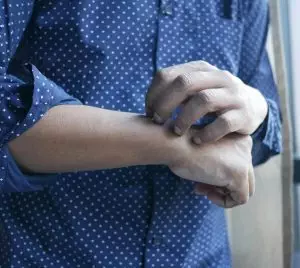
Skin-related MCAS Symptoms:
Itching (pruritus)
Hives (urticaria)
Flushing or redness of the skin
Rashes or eczema-like lesions
Swelling (angioedema), particularly of the face, lips, tongue, or throat
Gastrointestinal MCAS Symptoms:
Abdominal pain or cramping
Nausea and vomiting
Diarrhea or constipation
Acid reflux or heartburn
Bloating or abdominal distension
Respiratory MCAS Symptoms:
Wheezing or difficulty breathing (dyspnea)
Chest tightness or pain
Coughing or throat clearing
Nasal congestion or runny nose
Sneezing or postnasal drip
Cardiovascular MCAS symptoms:
Rapid or irregular heartbeat (palpitations)
Low blood pressure (hypotension)
Fainting or near-fainting episodes (syncope)
Fluctuations in blood pressure upon standing (orthostatic hypotension)
Raynaud’s phenomenon (abnormal blood vessel spasm in response to cold or stress)
Neurological MCAS symptoms:
Headaches or migraines
Dizziness or lightheadedness
Cognitive dysfunction or brain fog
Anxiety or panic attacks
Fatigue or malaise
These symptoms can vary in severity and may occur intermittently or chronically.
What Causes MCAS?
Medical science is unclear about the underlying cause of MCAS. Mastocytosis is a different mast cell disorder, in which people have an elevated number of mast cells. However, with MCAS, people have a normal number of mast cells; they just behave in an exaggerated manner when triggered.
MCAS is “primary” when there is a particular genetic mutation, which may happen due to mastocytosis or monoclonal mast cell activation syndrome (MMAS,) in which there is a clonal line of mast cells.
In some cases, when a person also has a diagnosed autoimmune disorder, allergy, or infection the MCAS is considered “secondary,” meaning that the overactive mast cell activity may be stemming from that other primary condition.
A diagnosis of “Idiopathic MCAS” indicates that neither of the above factors is present.
MCAS can begin at any point in a person’s life, including during childhood.
MCAS Treatment
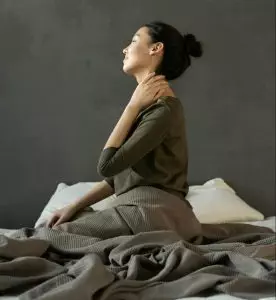
Treatment for Mast Cell Activation Syndrome (MCAS) in Western medicine typically involves a combination of medications and lifestyle modifications aimed at stabilizing mast cells and alleviating symptoms.
Antihistamines, such as H1 receptor blockers (e.g., loratadine, cetirizine) and H2 receptor blockers (e.g., famotidine, ranitidine), are commonly prescribed to reduce the effects of histamine released by mast cells.
Mast cell stabilizers, such as cromolyn sodium, can help prevent the release of inflammatory mediators from mast cells and may be used as preventive therapy. In cases of severe or refractory symptoms, corticosteroids or leukotriene inhibitors may be prescribed to suppress the immune response and reduce inflammation.
Medications to manage specific symptoms, such as gastrointestinal distress or cardiovascular symptoms, may be recommended.
Lifestyle modifications, such as avoiding known triggers, managing stress, and following a healthy diet, may also play a crucial role in managing MCAS symptoms.
It’s important for individuals with MCAS to work closely with their healthcare providers to develop a personalized treatment plan. Acupuncture and TCM can provide adjunct treatment for MCAS that address each patient’s unique symptoms and needs.
Can Acupuncture Help MCAS?
One of the central concepts of Traditional Chinese Medicine, which dates back many centuries, is that of the meridian system. The 12 meridians are channels of energy, or Qi, that flow throughout the body. Along the meridians are many acupoints: spots where Qi is activated when thin acupuncture needles or acupressure are applied to them.
But do the meridians exist as physical entities, or are they metaphorical?
Scientific research in the twentieth century sought to explain the various phenomena produced by the activation and manipulation of acupoints. It was found that both blood vessels and nerves are located near the acupoints in greater concentration than in other areas of the body. These studies suggested that acupuncture treatment functions through the vascular and nervous systems.
Later, further studies showed that acupuncture has effects on the production and releasing of hormones, such as endorphins, which has a analgesic effect of reducing pain.
The sensations that people feel as a result of acupuncture treatment cannot be fully explained by saying they are related to blood vessels, nerves, or hormones. Further questioning continued, asking if other cells or tissues could also be involved in how acupuncture works.
One female scientist, researcher, and professor in China, Jimei Song, hypothesized that activity around acupoints may be related to mast cell activation. This idea was Song’s Mast Cell Theory of Acupuncture (now called Song’s MC Theory for short, originally published in the Liaoning Journal of Traditional Chinese Medicine (TCM) in 1977.

Studies suggest that when an acupuncture needle penetrates the skin, mast cells are released, which then in turn, affect the blood vessels and nerves, leading to both sensations experienced by the patient in the moments, and systemic effects on the release of histamines, serotonin, and other chemicals than go on to create systemic effects. This is now considered a milestone in TCM research.
Acupuncture has been shown to have a positive effect on histamine response. Specific Chinese herbal formulas have also been shown to be effective in dampening mast cell activation. Compounds found in some herbs can help inhibit the production of cytokines.
An acupuncturist is able to address the problem both at its root, and help take care of the wide variety of symptoms a person may be experiencing. Acupuncture treatment can help relieve problems like itchy skin rash, sensitivities, orthostatic low blood pressure, and joint pain, all in one treatment session. A personalized herb formula can be prescribed to suit each individual patient.
Acupuncture Near Me for MCAS in Los Angeles
MCAS can mimic many other conditions and be difficult to diagnose and treat. This is what makes acupuncture, herbs, and moxibustion excellent modalities for helping to relieve MCAS symptoms such as: dizziness, headaches, musculoskeletal pain, insomnia, anxiety, hives, GERD, SIBO, IBS, interstitial cystitis bladder pressure, and more. Acupuncture and TCM can offer an adjunct or alternative treatment for MCAS symptoms.
*This article is for education from the perspective of Traditional Chinese Medicine only. The education provided by this article is not approved by FDA to diagnose, prevent, treat and cure human diseases. It should not stop you from consulting with your physician for your medical conditions. Traditional Chinese Medicine is based on Qi, which is an invisible force that usually cannot be observed by modern science. Because science focuses on testing ideas about the natural world with evidence obtained through observation, these aspects of acupuncture can’t be studied by science. Therefore acupuncture and Chinese herbs are often not supported by double-blind, randomized trials, and they are considered alternative medicine therapies in the United States.
How to Treat Sinusitis With Acupuncture and TCM
By Xiaomei Cai, L.Ac., Ph.D. and Qineng Tan, L.Ac., PhD.
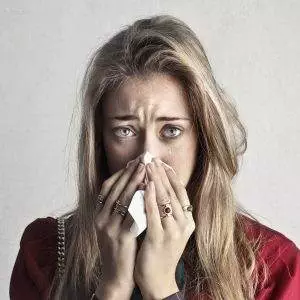
Stuffy nose, nasal congestion, sinus pressure or sinus headache? Lost your sense of smell? These could be sinusitis symptoms. Acute sinusitis is a sinus infection that can cause sinus pain, postnasal drip, and difficulty breathing. Acupuncture and TCM can help relieve sinus congestion and prevent chronic sinusitis.
The sinuses are four sets of hollow cavities inside the head (forehead, cheeks, and nose) that produce mucus and then allow it to drain through the nasal passageways. This process helps keep bacteria and allergens out of your nose.
What causes sinusitis? Sinusitis occurs when a sinus infection causes the sinuses to become inflamed and not drain properly. This usually happens because of a viral infection, like the common cold, or a bacterial infection or fungal infection. A long-term candida infection can also contribute to the development of sinusitis.
Sinusitis can seem similar to rhinitis, also known as allergic rhinitis. Rhinitis refers to swelling and inflammation inside the nose, and can also cause symptoms like nasal congestion. The difference is that rhinitis is brought on by an allergic reaction—commonly “hay fever,” or seasonal allergies—instead of an infection, and rhinitis is centered in the nasal passages, rather than the sinuses.
Factors like allergies, asthma, structural blockages, or weakened immune systems can elevate the risk of someone getting sinusitis. When the sinuses are blocked, bacteria and other pathogens can proliferate more easily.
Acute sinusitis usually clears up on its own in about 10 days, although getting acupuncture treatment and herbs can help bring relief sooner.
If sinus pain, stuffed up nose, and yellow-green mucus are still present after two weeks, it may mean that there is an infection that isn’t clearing up.
People are more at risk for developing sinusitis if they have:
- Seasonal allergies, hay fever
- Large adenoids (tonsils)
- Cystic fibrosis
- Smoke cigarettes
- Weak immune system due to HIV
- Take immunotherapy for autoimmune condition
- Unusual formation of the sinuses
- Are in an environment where they are exposed to lots of germs, such as day care
About 14% of Americans are diagnosed with chronic sinusitis every year; it’s one of the most common reasons that people will be prescribed antibiotics. However, if the sinusitis is occurring due to a viral infection, antibiotics are not really helpful.
TCM modalities of acupuncture, herbs, and moxibustion can help relieve symptoms of sinusitis and sinus pain, as well as helping to address allergies, asthma, clear up infections, improve immune function, and reduce inflammation.
Chronic Sinusitis and Nasal Polyps
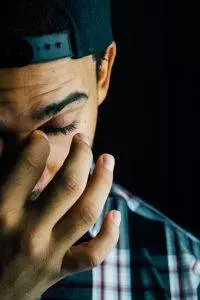
It is fairly common for people with chronic sinusitis to also have nasal polyps. Nasal polyps develop when the nasal tissue becomes swollen and inflamed to such a degree that fluid-filled sacs form.
If a person also suffers from allergies, then exposure to an allergen can cause the nasal polyps to become inflamed to the point that they block the nasal passages, causing difficulty breathing. When a person can’t breathe through their nose at night, in particular, it can lead to snoring and even sleep apnea.
Chinese herbal formulations that have antibacterial and antifungal properties can help to relieve overproduction of mucus and prevent nasal polyps from coming back.
Acupuncture treatment can also help people breathe easier and sleep better, stop snoring and relieve sleep apnea.
Top 5 Sinusitis Symptoms
Sinusitis typically begins with the usual symptoms of the common cold. Then, instead of clearing up after several days, the symptoms get worse. Symptoms of sinusitis include:
- Stuffy nose: thick, yellow, or greenish mucus causes a runny nose
- Postnasal drip: when mucus drips down the throat. Postnasal drip can be particularly uncomfortable at night, when you’re trying to sleep.
- Nasal Congestion: A blocked or stuffy nose makes it hard to breathe through the nasal passages.
- Sinus headache or Facial Pain: Pain, tenderness, and pressure around the eyes, cheeks, nose, or forehead, especially intensified when bending over.
- Loss of smell: Altered sense of smell.
Other signs of sinusitis may Include:
- Ear pressure
- Toothache
- Cough
- Sore throat
- Bad breath
- Fatigue
- Fever
Sinusitis Treatment
Medical treatment to help relieve symptoms of sinusitis typically involves:
- Regularly spraying saline nasal spray (or saltwater) into the nose helps rinse the nasal passages.
- Corticosteroid nasal sprays, such as fluticasone and budesonide, prevent and treat swelling in the nasal passages.
- Over-the-counter decongestants in liquid, tablet, or nasal spray can help relieve nasal congestion. However, nasal decongestants should be used for a limited time to avoid rebound congestion.
- If sinusitis is allergy-related, allergy medicines can alleviate allergy symptoms.
- Acetaminophen, ibuprofen, or aspirin may be recommended to manage face pain and sinus headaches.
- Antibiotics: Since acute sinusitis is often viral, antibiotics, which target bacteria, may not be immediately prescribed. Providers may adopt a “wait and see” approach, reserving antibiotics for severe, worsening, or prolonged cases.
For cases of sinusitis linked to allergies, immunotherapy, commonly in the form of allergy shots, may be recommended. Immunotherapy aims to desensitize the immune system to specific allergens, potentially reducing sinusitis symptoms triggered by allergies.
Acupuncture and Chinese herbs can provide a safe alternative treatment for sinusitis, without the side effects that some of these medications can cause.
Can Acupuncture Help Sinusitis?
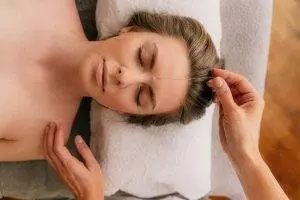
TCM has been used for centuries to treat sinus conditions. An acupuncturist will carefully observe each individual patient’s symptoms and experience to determine whether warming or cooling herbs are necessary to help relieve sinus congestion and treat the underlying cause of the problem.
According to TCM theory, sinusitis can result from external factors of wind and cold, which can weaken the lungs, preventing the lung system from doing its job of protecting the body from infections. In TCM, we say that the spleen produces phlegm, and the lungs store phlegm.
In some cases, it is necessary to nourish the Spleen Qi in order to address underlying causes of mucus buildup and improve immune system function.
Specific acupuncture points can be very helpful for relieving sinus pressure, sinus headaches, and other symptoms of sinusitis. A few examples include Shen Ting (“Spirit Court”), Yin Tang (“Hall of Impression”), Ying Xiang (“Welcome Fragrance”), and Zhanzu.
One study of patients with sinusitis treated with acupuncture showed a 60% reduction in sinus pain, and significantly improved air flow.
Another study showed that patients who had already had surgery for nasal polyps who received Chinese herbs in addition to conventional medical treatment had better quality of life, with less symptoms of nasal discharge, difficulty breathing, and bad breath.
A review of studies pertaining to TCM treatment for chronic rhinitis concluded that acupuncture is indeed an effective alternative or adjunct treatment for symptomatic improvement.
A study that offered acupuncture treatment and herbal formulations to help relieve nasal polyps found that this method helped prevent the recurrence of polyps.
Acupuncture Near Me for Sinusitis
Sinusitis, nasal polyps, and rhinitis are common conditions that cause a lot of discomfort for millions of people every year. If you or someone in your family is prone to recurrent infections that cause sinus pain and pressure, it may be time to try alternative medicine to help address the underlying causes of sinus headache and a constant stuffy nose and postnasal drip.
*This article is for education from the perspective of Traditional Chinese Medicine only. The education provided by this article is not approved by FDA to diagnose, prevent, treat and cure human diseases. It should not stop you from consulting with your physician for your medical conditions. Traditional Chinese Medicine is based on Qi, which is an invisible force that usually cannot be observed by modern science. Because science focuses on testing ideas about the natural world with evidence obtained through observation, these aspects of acupuncture can’t be studied by science. Therefore acupuncture and Chinese herbs are often not supported by double-blind, randomized trials, and they are considered alternative medicine therapies in the United States.
How to Treat Hay Fever With Acupuncture and TCM
By Qineng Tan, L.Ac. Ph.D. & Xiaomei Cai, L.Ac., Ph.D.
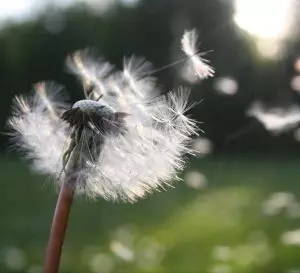
Itchy eyes, runny nose and sneezing? These are some of the classic seasonal allergy symptoms, also known as allergic rhinitis, or hay fever. Acupuncture and TCM herbs can help relieve allergies, including pollen allergy symptoms.
Seasonal allergies affect about 20% of Americans. Allergic rhinitis is an immune system reaction to an allergen in the air that can be inhaled, like pollen from budding trees, growing grass, and plants like ragweed. Hay fever is a common term that typically describes being allergic to pollen.
“Pollen” are tiny seeds from plants that can be carried by the wind. When there is lots of pollen in the air, this is called a high pollen count. You can check the pollen count, like a weather report, to see when it is particularly high, and thus may affect people who suffer from seasonal allergies and asthma.
While having an allergic reaction to common airborne allergens happens most often during the spring, summer, and early fall, when plants are giving off a lot of pollen, people can actually experience hay fever at any time of the year.
Similar allergy symptoms can occur due to exposure to dust mites, molds, and pet dander.
Acupuncture and TCM can help relieve the irritating symptoms caused by allergic reactions by helping to strengthen and balance the immune system so that it is not so easily triggered.
Top 10 Seasonal Allergy Symptoms
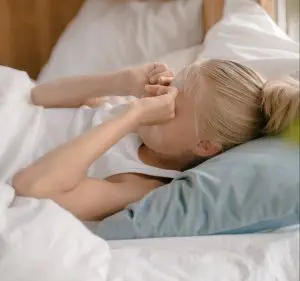
The body’s histamine response causes inflammation of the mucus membranes in the sinuses and throat. The increased mucus production occurs in order to drive out the offending allergens.
Pollen allergy symptoms are similar to those of the common cold. Signs of hay fever include:
- Sneezing
- Nasal congestion
- Runny nose, itchy nose
- Itchy eyes, watery eyes (allergic conjunctivitis)
- Itchy throat
- Postnasal drip
- Headaches, sinus pain
- Dark circles under eyes, puffy eyes, “allergic shiners”
- Fatigue, malaise, generally feeling under the weather
- Wheezing, coughing, trouble breathing
Skin rash is a less common symptom of seasonal allergies, but some people do develop a hay fever rash. The itchy allergy rash may look similar to hives: raised red welts on the skin.
Treatment for Hay Fever
The common medical treatment for hay fever is an antihistamine. Histamines are chemicals that occur naturally in the body as part of the immune response to allergens in the environment. The release of histamines is what leads to allergy symptoms like a runny nose and itchy eyes.
Antihistamines come in pill or spray form, and they block the histamine response, which can temporarily relieve the hay fever symptoms. However, these medications do have side effects, the most common of which is drowsiness.
If someone is not getting relief from antihistamines, then corticosteroids, or steroids, may be prescribed. These work as anti-inflammatories, which in this case means that they reduce the swelling of mucous membranes. Steroids, too, can have significant side effects, especially when used over a long period of time.
Nasal sprays for allergies, like Flonase or Mucinex, are decongestants that are designed to be sprayed into the nose to help reduce allergy runny nose. Again, these may provide some temporary relief, but people can quickly get used to them, so they stop being effective.
Acupuncture and TCM offer an alternative treatment for allergies that can help relieve hay fever symptoms without side effects.
Can Acupuncture Help Hay Fever?

According to TCM theory, allergies fall under the category of illnesses that are caused by “wind” as a pathogenic force that can invade the body. In the TCM view, hay fever occurs due to wind-heat getting into the lungs.
Weakness of the kidneys and spleen can also contribute to hay fever; when they are sluggish, mucus tends to build up, and we become more easily fatigued.
When the defensive Qi is strong, it can protect us from cold, heat, wind, and dampness getting into the body and causing problems. Defensive Qi is roughly analogous to what we think of as the immune system in conventional medicine.
TCM treatment for allergic rhinitis may include acupuncture, herbal supplements, moxibustion, and nutrition counseling. TCM can be used either as an alternative therapy for allergies, or as an adjunct treatment for hay fever, along with pharmacological treatment.
Chinese herbs have been used for many centuries to treat allergy symptoms. Now, we are able to see scientific evidence that these herbs, such as astragalus, magnolia flower, and licorice root, do actually have an effect on the immune response and histamine function by helping to regulate the production of chemicals like cytotoxic T-cells and immunoglobulin G. Compounds found in scutellaria root have been found to inhibit the production of inflammatory cytokines, and stephania root can help prevent anaphylaxis.
With Chinese herbal medicine, we are able to create customized formulas for each patient, depending on their particular presentation of symptoms.
Acupuncture is a highly effective modality for all types of allergies, from allergic rhinitis to atopic dermatitis or eczema, and can help relieve the nasal sinus symptoms that affect the eyes, nose and mouth if someone is allergic to pollen. It can also help reduce itching due to allergic skin rashes.
A clinical trial conducted at a hospital in China showed that a regimen of acupuncture and herbs resulted in over 90% of patients reporting that their nasal symptoms were greatly reduced.
Another published study showed that acupuncture reduced levels of Immunoglobulin-E, an antibody that is associated with allergy responses.
A review of studies of acupuncture for allergic rhinitis showed that this treatment has both short-term and long-term efficacy.
TCM treatment for seasonal allergies allows us to get to the root cause of allergy symptoms and help prevent them from happening. In this way, acupuncture and herbs can function as preventive medicine for hay fever. Getting acupuncture periodically throughout the year can help you avoid allergy attacks when the pollen count is high.
Top 3 Tips for Hay Fever Prevention
Here are some things you can do to help prevent spring hay fever and relieve pollen allergy symptoms:
- Avoid dairy food and cold foods, which promote more mucus production.
- Apply warm compresses to the face to soothe the eyes and nasal area.
- Use an air purifier in your home to keep allergens out of the environment.
To relieve allergies, emphasize more cooked foods that help warm the body.
Acupuncture Near Me for Hay Fever in Los Angeles Area, Santa Monica
The multifaceted approach of TCM makes it uniquely suited to help relieve seasonal allergy symptoms. Acupuncture can help reduce hay fever symptoms right away and help prevent allergies from knocking you down every time the pollen count is high. Please do not hesitate to seek relief from hay fever by giving acupuncture and herbs a try.
*This article is for education from the perspective of Traditional Chinese Medicine only. The education provided by this article is not approved by FDA to diagnose, prevent, treat and cure human diseases. It should not stop you from consulting with your physician for your medical conditions. Traditional Chinese Medicine is based on Qi, which is an invisible force that usually cannot be observed by modern science. Because science focuses on testing ideas about the natural world with evidence obtained through observation, these aspects of acupuncture can’t be studied by science. Therefore acupuncture and Chinese herbs are often not supported by double-blind, randomized trials, and they are considered alternative medicine therapies in the United States.